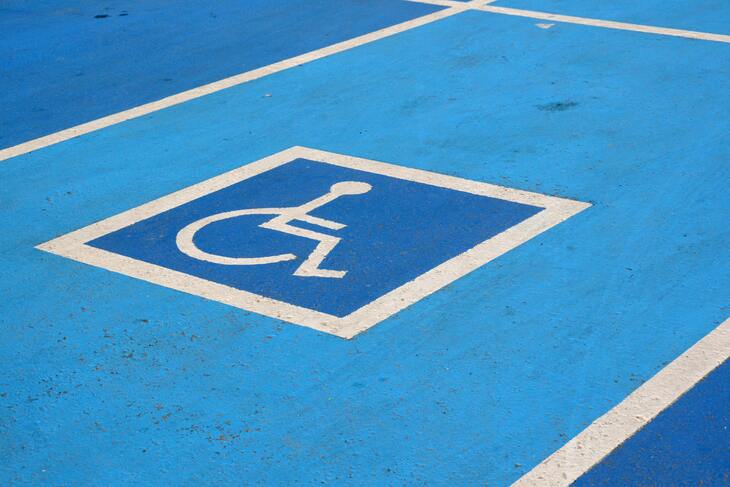If you hold a handicap parking permit, staying up-to-date with the renewal process is key to maintaining access to accessible parking spaces. With this in mind, knowing when and how to renew your permit in Massachusetts can save you from potential fines or losing your parking privileges.
This guide will walk you through everything you need to know about renewing your handicap permit in Massachusetts. Whether you’re renewing for yourself or someone else, we’ll break down the steps and provide useful tips to ease the process.
Why Is It Important to Renew Your Handicap Permit?
First things first—why is renewing your handicap permit so important? Handicap parking permits allow those with mobility impairments to park in designated spaces. By the same token, these spaces offer easier access to buildings and other facilities. These permits ensure people with disabilities can go about their daily lives more comfortably.
An expired permit can result in difficulties accessing these essential spaces, not to mention you could face fines for parking in handicap spots without a valid placard. In fact, you even risk losing your permit entirely. So, by staying on top of the renewal process, you’ll avoid these inconveniences and continue enjoying accessible parking.
Who Needs to Renew Their Handicap Permit in Massachusetts?
In Massachusetts, there are two main types of handicap permits, and both require periodic renewal:
1. Permanent Handicap Placard:
While permanent placards are meant for people with long-term disabilities, you must renew them every five years. The good news? The Massachusetts Registry of Motor Vehicles will send you a new one automatically after the current one expires.
2. Temporary Handicap Placard:
If you have a temporary disability, such as an injury or surgery, you may have been issued a temporary handicap placard. These permits are valid for between 2 and 24 months. In this case, you will have to submit a new application with a new medical certification.

How to Renew a Permanent Handicap Permit in Massachusetts
As we mentioned above, in Minnesota, permanent handicap permits renew automatically every five years. That is, you don’t have to submit a renewal application, because the RMV will send you the new placard or plate to your address. Normally, you will receive it 2 weeks before the expiration date.
For this reason, it is paramount to keep your address updated with RMV to avoid any issues. In addition, after receiving your new placard, you must send the explored placard to:
Registry of Motor Vehicles
Medical Affairs
PO Box 55889
Boston, MA 02205
How to Renew a Temporary Handicap Permit in Massachusetts
Renewing a temporary handicap placard is a bit different because it requires a new application. Likewise, you also need a new medical certification. To get your handicap permit renewal, here’s what you need to do:
Step 1: Obtain a New Medical Certification
A new medical certification is vital to obtaining a new parking permit in Massachusetts. Here’s what you need to do:
- Visit Your Healthcare Provider: Discuss your condition and the need for a handicap parking placard.
- Get the Certification: Ensure the medical professional completes and signs the certification form.
Step 2: Gather Necessary Documentation
To renew your handicap placard, you’ll need to collect several important documents. Here’s a checklist to help you prepare:
- Proof of Identification: This can be your driver’s license, state ID, or passport.
- Completed RMV Medical Affairs Application: This form is available on the Massachusetts Registry of Motor Vehicles (RMV) website.
- Medical Certification: Obtain this from a licensed healthcare professional who can verify your disability and the need for a placard.
- Out-of-State Placard (if applicable): If you’re using a placard from another state, include a copy or proof of its valid registration.
Step 3: Submit Your Renewal Application
With all your documents ready, it’s time to submit your application. You have two options for submission:
- In-Person: Visit your local RMV office to submit your application and documents directly. This option allows for immediate confirmation of receipt.
- By Mail: If you prefer, you can send your completed application and documents to the RMV Medical Affairs Office. Be sure to use a secure mailing method to track your submission.
Step 4: Pay the Renewal Fee
Even though handicap placards in Massachusetts have no fee, handicap plates do.
So, check with the RMV office about the current fee. Then, you can pay this fee in person or include it with your mailed application. Ensure that you keep a copy of your payment for your records.
Step 5: Wait for Your New Placard
After the RMV processes your renewal application, you will receive your new temporary placard by mail. Be sure to allow for processing time and plan if you anticipate needing the placard beyond the original expiration date.
Pro tip: Mark your calendar when you first receive your permit so you don’t miss your renewal window!
Avoiding Delays: Tips for a Smooth Handicap Permit Renewal in Massachusetts
Renewing your temporary handicap permit can be quick and easy, as long as you follow a few simple tips:
- Mark Your Calendar: Keep track of your placard’s expiration date and start the renewal process well in advance. This will help you avoid any gaps in your permit’s validity.
- Double-Check Your Application: Before submitting your renewal form, make sure all required fields are filled out correctly. Missing or inaccurate information could delay the processing of your application.
- Plan for Processing Time: It can take a few weeks for the RMV to process your renewal application, especially if you submit it by mail. Think ahead to ensure your new placard arrives before your current one expires.
- Check Your Mail: Keep an eye out for your renewal notice from the RMV. If it doesn’t arrive a few months before your permit expires, contact the RMV to check on your status.

Penalties for Using an Expired Handicap Placard
Using an expired handicap placard comes with serious consequences in Massachusetts. For instance, parking in a designated handicap space with an expired placard can lead to hefty fines, vehicle towing, or even the revocation of your parking privileges.
In addition, using someone else’s placard or keeping a temporary placard after you no longer have a disability can result in fines and potential legal action. Massachusetts takes parking permit violations seriously, so always use your placard responsibly.
What to Do If Your Handicap Placard Is Lost or Stolen
Losing your handicap placard can be a stressful experience, but don’t worry! The Massachusetts RMV makes it easy to replace a lost or stolen permit. Here’s what to do:
- Report the Loss: If your placard has been stolen, report the theft to local law enforcement. Having a police report on file will protect you from liability if the placard is misused.
- Apply for a Replacement: To replace a lost or stolen placard, fill out the Application for Disability Placard/Plate. Submit the form either by mail or in person at an RMV office. There’s no fee for replacing a placard, but you may need to provide proof of identity and disability.
- Wait for Your New Placard: Once your replacement application is processed, the RMV will mail your new placard to you. Likewise, be sure to display it properly in your vehicle to avoid fines or penalties.
What to Do If You Don’t Receive Your New Handicap Permit
After renewing, it can take up to four weeks to receive your new permit. However, if you don’t get it in the mail, don’t panic! Here’s what you should do:
- Check your renewal confirmation: Whether you renewed online or in person, you should expect to receive a confirmation. Check that first.
- Contact the RMV: If it’s been over four weeks and you still haven’t received your permit, contact the RMV at their customer service number to check on the status of your renewal.
Extra Tips & Tricks for a Succesful Permit Renewal Process
Renewing your handicap permit in Massachusetts doesn’t have to be a hassle. Here are some extra tips to get a swift process:
1. Renew Early
Don’t wait until the last minute! Start the renewal process as soon as you receive your notice to avoid gaps in your permit’s validity.
2. Keep Copies of Everything
Whether you renew by mail or in person, it pays to keep a copy of all forms and confirmation numbers. These can be useful if any issues arise.
3. Know Your Rights
Massachusetts law protects your rights as a person with a disability. Be sure to understand the rules around handicap parking to avoid any legal issues, but also know your rights to ensure safe and fair handicap parking use for you.
Renewing Your Handicap Permit in Massachusetts: Final Thoughts
Renewing your handicap permit in Massachusetts doesn’t have to be a stressful or complicated task. With the RMV’s streamlined renewal process, it’s easier than ever to stay compliant with state regulations.
Remember to keep track of your permit’s expiration date, gather all necessary documentation, and submit your renewal application with enough time for processing.
If you want to renew your Massachusets handicap permit safely and hassle-free, we’ve got you covered!
Featured image by Following NYC on Pexels
